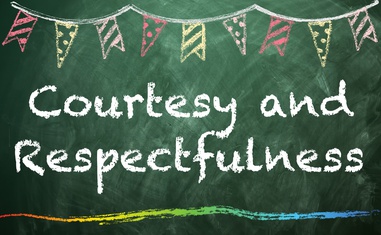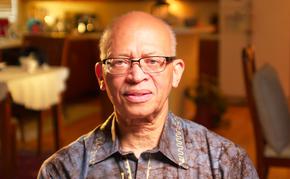Whenever we witness or practice courtesy and respectfulness – those kind, wonderful, closely-interrelated human attributes – we get a sense of what it’s like to live a spiritual life.
Courtesy means being polite and considerate, while respectfulness means honoring everyone’s rights and treating them with dignity. To be courteous we need to make people feel valued, cared for, and appreciated. To be respectful means treating others as we would want to be treated.
The Baha’i teachings describe courtesy as “the prince of virtues,” as in this quotation from Baha’u’llah:
O people of God, I admonish you to observe courtesy, for above all else it is the prince of virtues. Who is endued with courtesy hath indeed attained a sublime station.
When we practice courtesy and evince respectfulness, we make others feel important and acknowledged. People naturally like to be around courteous and well-mannered individuals, and tend to reciprocally return the respect we give to them.
If we learn to respect others, such as elders, parents, and teachers, their experience and wisdom can teach us many important things in life. Without showing that courtesy and respect, we severely limit our ability to learn, and to profit from the example of previous generations. Respectfulness, however, isn’t just meant for our elders – it applies to the younger people in life, too.
RELATED: The Virtues Basket: How Do We Practice Kindness?
The Baha’i teachings say that children are born with the innate capacity to become noble people, and that our behavior as adults can teach them to be happy and empowered individuals. Conducting ourselves with courtesy and respectfulness toward the young helps us to be peaceful and kind, and also indirectly teaches our children to follow in our footsteps.
Courtesy doesn’t only mean acquiring good manners, but speaking with manners like saying “Thank you,” “Excuse me,” and “You’re welcome,” is important because it shapes who we are and tells others that we appreciate them.
RELATED: The Virtues Basket: How to Nurture a Spirit of Service
Respectfulness also includes self-respect – which includes protecting our privacy, our rights, and our dignity as well. This means stopping anyone who violates our rights. Self-respect means we do not allow others to use and abuse us. Respectful people express their feelings of anger or frustration with words in a peaceful manner. Additionally, having good manners and being polite will compel others to also respect your boundaries and rights.
Virtues Basket helps demonstrate the attitude of courtesy and respectfulness, and to teach children the importance of good manners, which can bring harmony to their family and schools. With those acquired attributes, children become adults with a positive attitude and a positive presence in society. Join us in this episode as we delve into the key virtues of courtesy and respect.
Setareh Samandari Zargarpour has always been an artist at heart, after a 20-year career in Banking as Branch Manager for Wells Fargo and Chase she transitioned to working in Film. She had finished her Master of Arts in Political Science from CSUN and utilized it...
READ MORE
















Comments
Sign in or create an account
Continue with Googleor